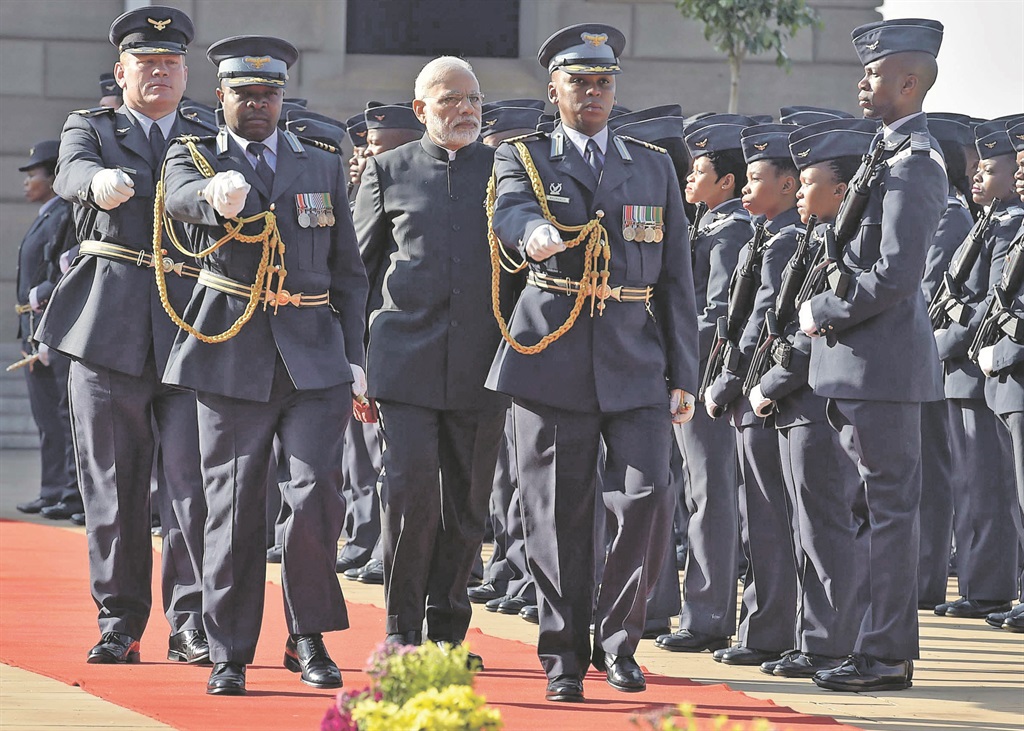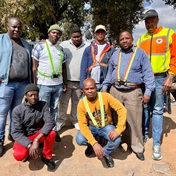
Zuma’s change of stance could anger China, which wants India to sign non-proliferation treaty first
South Africa’s latest diplomatic backing of India could risk incurring the wrath of another Brics ally – China.
Brics is the grouping of five major emerging national economies, Brazil, Russia, India, China and South Africa.
India’s Prime Minister Narendra Modi last week thanked South Africa for agreeing to back its bid for membership of the Nuclear Suppliers Group (NSG), diplomatically one of the most important outcomes for India from Modi’s much-vaunted visit to South Africa.
“President [Jacob] Zuma and I also agreed on the need to work more closely on international issues and emerging global challenges,” Modi read from an autocue prompt at a press briefing on Friday, where questions were disallowed apparently at the behest of the Indian delegation.
“I thank the president for South Africa’s support for India’s membership of the NSG. We know that we can count on the active support of our friends like South Africa.”
Zuma did not mention the issue in his statement.
A source close to the Chinese government said China, which opposed India’s membership to the NSG, would not like this development, but that, practically, it didn’t really matter.
Membership to the prestigious 48-member NSG is by consensus of existing members.
The NSG seeks to prevent nuclear proliferation by controlling the export of materials, equipment and technology that can be used to manufacture them. India wants membership for easier access to this technology to use in its industries.
The US and Russia back India, but its bid for membership failed at last month’s NSG meeting because of opposition from China, South Africa, New Zealand, Ireland, Turkey and Austria.
China wants India to sign the Treaty on the Non-Proliferation of Nuclear Weapons, one of the conditions of NSG membership. India has complied with its provisions, but allowing it into the NSG would set a precedent for Pakistan, which is also seeking NSG membership.
Pakistan, a close ally of China’s, has also not signed the non-proliferation treaty, but there are international concerns about its nuclear track record.
A South African official involved in talks with Indian officials said “many Indians are angry” about South Africa not backing India at last month’s NSG meeting. The change in stance was an effort to strengthen ties between the two countries.
Another official said South Africa was happy about India complying with the non-proliferation requirements, and would support India with these criteria in mind.
According to a joint statement by India and South Africa on Friday, Modi in his meeting with Zuma “reiterated India’s commitment to comply with NSG guidelines and continued commitment to non-proliferation and disarmament”.
The CEO of the SA Institute for International Affairs, Elizabeth Sidiropoulos, said it was too early to tell exactly how South Africa’s backing for India could influence its relationship with China.
“I would like to see what position South Africa will take if there is an interim meeting, which the Indians are hoping for [before the annual NSG meeting next year], and how vociferously it will fight for India. South Africa will play a very careful game,” she said, adding that it would be interesting to see to what extent it will insist on the criteria.
She said India has correctly argued that the signing of the non-proliferation treaty didn’t necessarily bring about compliance, but this raised questions over why India itself was refusing to sign.
“Membership of the grouping is part of legitimating India as a [global] political power,” she said.
Sidiropoulos added that Modi had a very dynamic foreign policy and had travelled the world widely since coming to power two years ago.
This is Modi’s first official visit to Africa.
China’s annual trade with the continent is three times larger than India’s $72 billion (R1.05 trillion).
Trade deals and business opportunities dominated official discussions on Friday, followed by a meeting of the Indian-South Africa Business Forum.
Modi also addressed Indian communities in South Africa, reminding them of their link with India and of their duties to the country they live in.
Modi also paid homage to former president Nelson Mandela and Indian struggle icon Mahatma Gandhi.




 Publications
Publications
 Partners
Partners








